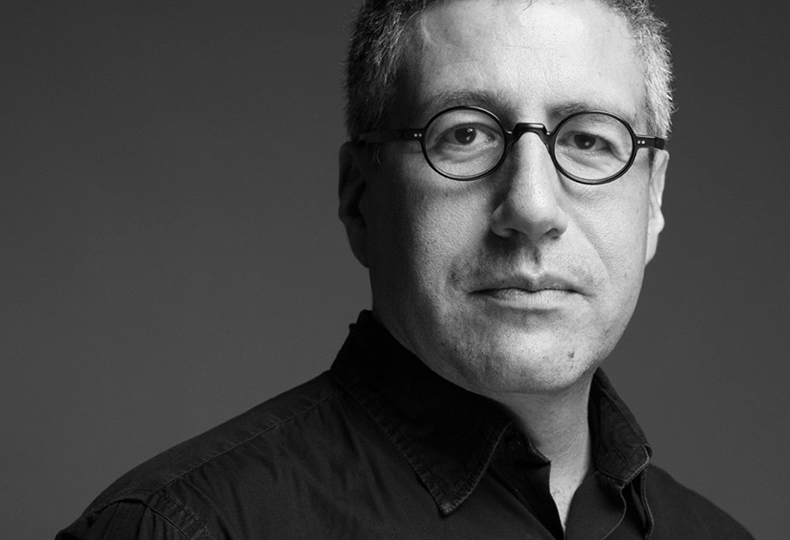Gilles Dowek, awarded the 2023 and 2024 medals by the French Academy of Sciences

He was awarded the Grand Prix Inria 2023 and the Histoire des sciences et épistémologie 2024 medal by the Académie des sciences.
His research in computer science is at the crossroads of logic, philosophy, pedagogy, epistemology and digital ethics.
Portrait of a highly committed personality.
Profile
Already in high school, he was a member of the Société des amis du Palais de la découverte and the Association nationale sciences techniques jeunesse (now Planète Sciences). His “Mastermind” game program won him the Philips Science Prize for Young People in 1982, and he represented France at the European Philips contest for young scientists and inventors in 1983, the year of his baccalauréat.
After two years of preparatory classes, Gilles Dowek entered the École polytechnique (promotion X1985), followed by a master's degree in computer science at the Université Paris VII (now Université Paris Cité).
In 1991, he defended a doctoral thesis at Université Paris 7 entitled “Démonstration automatique dans le calcul des constructions”, under the supervision of Gérard Huet. “My ambition was to become a researcher in a computer science laboratory, and it was with this determination that I directed all my studies.”
After defending his thesis, the researcher undertook a post-doctorate in the USA, first at Carnegie Mellon University, then at Computational Logic Inc. a company specializing in formal mathematical demonstration.
Developing universal logical frameworks
In 1993, Gilles Dowek returned to the Institut national de recherche en sciences et technologies du numérique (Inria) as a researcher, working on the Formel project. Noting the multiplicity of proof systems and the lack of equivalence between them, he set about developing universal logical frameworks. “I felt that this way of organizing research was not optimal, with small teams scattered all over the world and competing with each other. In this context, a few years later he founded and led the Deducteam project-team, dedicated to the design of languages and tools for formal demonstration, in order to unify approaches and facilitate exchanges between different systems.
Teaching IT differently
From 2002 to 2010, Gilles Dowek was Professor of Computer Science at the École Polytechnique. In 2015, he joined the École Normale Supérieure Paris-Saclay as an adjunct professor, with a particular focus on master's level teaching.
He is interested in pedagogy and proposes a new teaching method, notably that of the “flipped classroom”, which consists of sending video lectures to devote face-to-face hours to discussion and exchange. “I've observed that those who are motivated by a project understand better what is required of them during their studies, and this helps them to succeed.
Since 2005, he has published a series of articles on the subject. “Learning computers is a bit like learning to read: you can't start with the basics in the morning and tackle complex texts in the afternoon, it goes too fast.” To this analysis, he adds, among other things, a criticism that pedagogical approaches should not be centered on a single concept: “It's important to have a balanced approach between the different concepts of computer science, such as algorithm, language, computer or information.” His commitment led him to become a member of the Group of Experts set up by the French Minister of Education to propose the programs for the Computer Science and Digital Science speciality in the S final year, which resulted in the program published in the Bulletin Officiel in October 2011.
He is co-author
Passionate about logic at the crossroads of mathematics, philosophy and computer science
In parallel with his research and teaching activities, Gilles Dowek is engaged in philosophical reflection on the nature and foundations of computer science. In 1993, after completing his post-doctorate, he published his first book, La Logique, an introduction to logic as a field of thought (Ed. Le Pommier). “Logic was first a branch of philosophy, then of mathematics, and today it is becoming a part of computer science, while remaining practiced by mathematicians and philosophers.”
In 2007, Gilles Dowek published Les Métamorphoses du Calcul, in which he analyzes the transformation of mathematics in the XXᵉ century, marked by the integration of the notion of calculation. “Until the twentieth century, the notion of demonstration dominates, at the expense of that of calculation.” He questions the reasons for calculus' bad reputation - illustrated, for example, when someone is pejoratively referred to as a “calculator”. The researcher then traces how calculus is regaining its central place, notably through systems for verifying demonstrations. This work earned him the Grand Prix de philosophie de l'Académie française.
In 2019, he publishes Ce dont on ne peut parler, il faut l'écrire (Le Pommier ed., Essai Coll.), devoted to the notion of language. “We may only be on the cusp of a time when the thoughtful construction of languages, freeing ourselves from the limitations of languages, will increase our faculties of expression tenfold” (p.210). To languages
Towards more ethics in digital business
Finally, Gilles Dowek is involved in ethical issues related to computer science. He took part in the creation of the Commission de réflexion sur l'éthique de la recherche en sciences et technologies de numérique d'Allistene (Cerna) (CEA, CNRS, CDEFI, France Universités, IMT, Inria). The aim of this committee is to submit initial contributions on the ethics of digital science and artificial intelligence, and to determine the appropriate balance for organizing the debate on the ethics of digital science and technology and artificial intelligence.
It looks at the management of personal data in the digital world, and in particular at the question of proper names, and proposes alternatives for managing name changes in databases.
Prix et distinctions
- 2024: History of science and epistemology medal - Académie des sciences
- 2023: Grand prix Inria - Académie des sciences ;
- 2007: Grand prix de philosophie de l'Académie Française: “Les métamorphoses du calcul” (“The metamorphoses of calculation”)
- 1982: Philips Youth Science Prize
